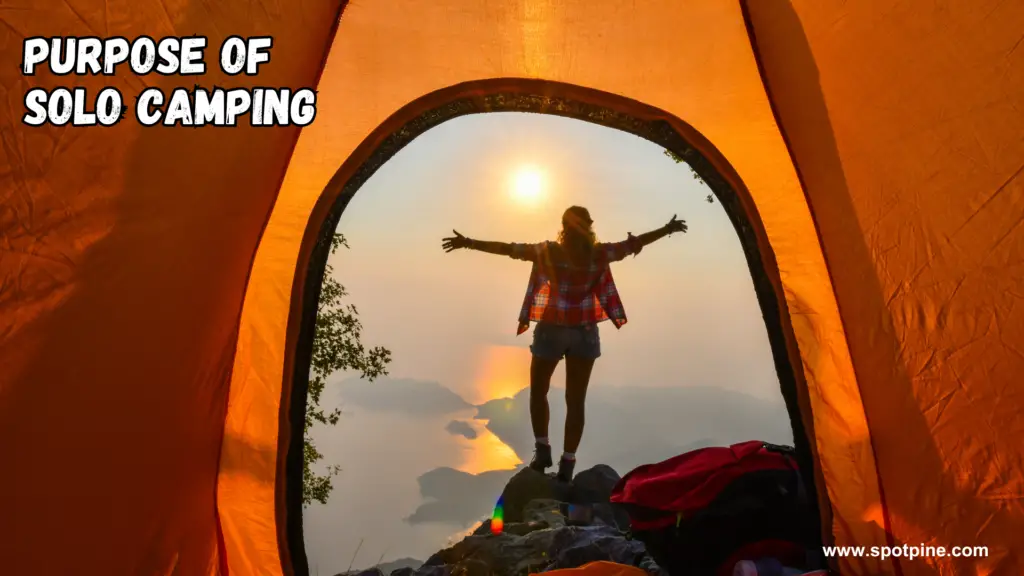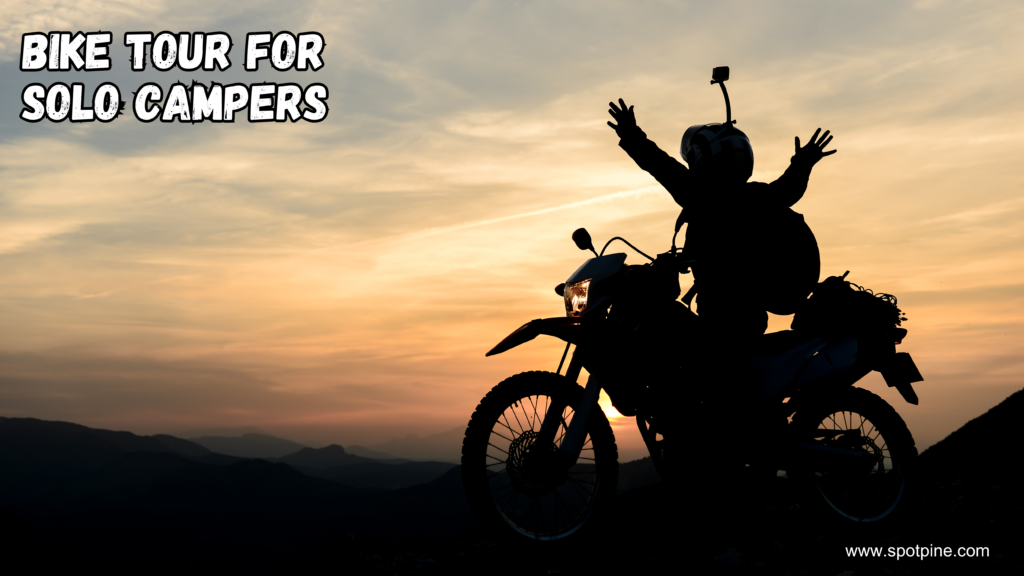Solo camping allows individuals to disconnect from the world and reconnect with nature while gaining self-confidence and a sense of independence. It provides an opportunity to escape from the stresses of daily life and embrace solitude in an outdoor setting.
For many, solo camping is a chance to step outside of their comfort zone and challenge themselves mentally and physically. It can be a great way to reflect on personal goals and values, as well as to practice mindfulness and relaxation.
Additionally, experiencing the natural world without the distractions of technology and social interactions can lead to a deeper appreciation and understanding of the environment and our place within it. Despite the potential challenges, solo camping can be a rewarding and transformative experience for those who are willing to take the leap.
The Magic Of Solo Camping
The magic of solo camping lies in the adventure it brings. Apart from providing an opportunity to experience nature up close, solo camping has multiple benefits like self-discovery, de-stressing, and self-confidence building.
Unleashing The Inner Adventurer
Solo camping pushes the boundaries for adventure seekers and outdoor enthusiasts. It’s an opportunity to test one’s survival instincts and discover self-reliance. The alone time also provides an avenue to explore the wilderness with a different perspective. Every decision becomes crucial and every moment teaches a new skill.
Escaping The Hustle And Bustle Of City Life
The city lifestyle is full of chaos, noise, and stress. Solo camping, on the other hand, offers a refreshing break from the hassle and allows people to connect with nature. The calming sound of nature’s music and the scenic beauty help to clear the mind, rejuvenate the body and restore the soul. The solitude allows people to reconnect with their inner self and recharge for future challenges.
While solo camping might not be everyone’s cup of tea, it is an experience worth trying. It presents the perfect opportunity to disconnect from the world and reconnect with oneself.
Planning For Solo Camping
Solo camping can be a great opportunity for self-discovery, gaining independence, and experiencing nature on your own terms. It allows campers to unplug, reflect, and fully immerse themselves in their surroundings without the distractions of others.
Solo camping can be a fulfilling and rewarding outdoor experience, but it requires plenty of preparation and planning. Before heading out on your solo adventure, there are some key factors to consider to ensure that you stay safe and comfortable during your trip. This post will explore some tips and tricks for planning and preparing for solo camping.
Choosing The Right Destination
When planning for solo camping, it’s essential to choose the right destination. Research your options, and choose a location that aligns with your interests and skill level. Consider the terrain, weather, and distance from civilization. Whether you’re looking for a remote backcountry experience or a campground with amenities, make sure you’re prepared for the location you choose.
Packing Right For The Adventure
Packing the right gear and supplies for your solo camping trip is crucial. Make a list of all the essentials, including shelter, food and water, appropriate clothing and footwear, first aid kit and emergency supplies. Pack only what’s necessary and try to keep your load as light as possible. Organize your gear before leaving, so you know exactly what you have, and where everything is.
Making Sure You Are Safe
Safety should be a top priority when planning a solo camping trip. Make sure to inform someone of your itinerary and expected return date before leaving. Carry a means of communication like a cell phone or emergency beacon. Familiarize yourself with basic wilderness safety skills such as starting a fire, building shelter, and navigation. Check weather forecasts and be prepared for any conditions you may encounter. In conclusion, solo camping can be a challenging and rewarding experience. With the right preparation and planning, you can enjoy the solitude, self-reliance, and connection to nature that it offers. Remember to choose the right destination, prepare adequately, and prioritize safety. With these tips, you’ll be ready to embark on a solo camping adventure that you’ll never forget.
Benefits Of Solo Camping
Solo camping can be an excellent way to recharge and rejuvenate. It provides an opportunity to disconnect with the world and reconnect with yourself. Camping alone in nature can do wonders for your mental, physical, and emotional health. Here are three of the top benefits of solo camping:
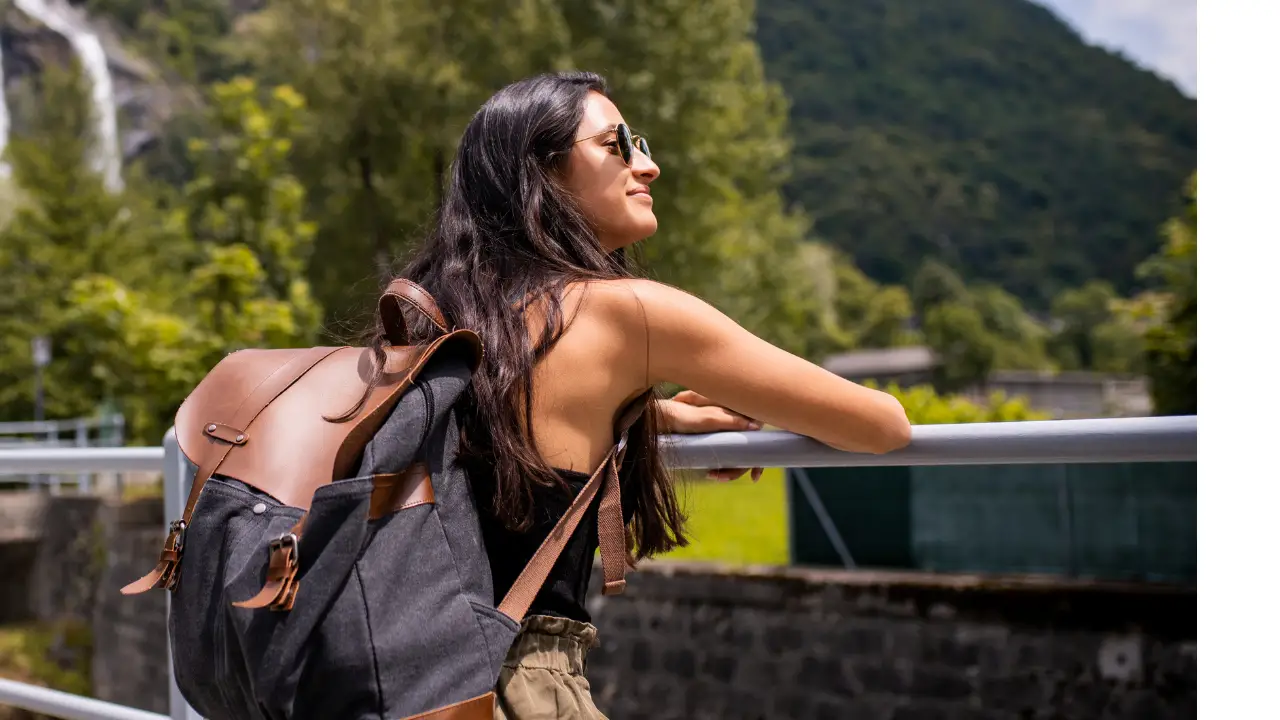
Achieving Mental And Emotional Clarity
Being alone in nature can help you disconnect from the distractions of everyday life and gain mental clarity. When solo camping, you have the time and space to reflect, meditate or be mindful and connect with your thoughts. It also helps to reduce anxiety and stress and improve memory and concentration skills. Furthermore, camping alone can be a cathartic and liberating experience, allowing you to work through any underlying emotional issues.
Boosting Physical Health And Fitness
Solo camping can be physically demanding and requires strength to set up camps and move around in nature. This can provide an opportunity to boost your physical health and fitness levels. Hiking in nature, swimming in rivers or lakes, and doing yoga in open space can improve cardiovascular endurance, increase strength and flexibility. Additionally, the fresh air and sunlight can help improve immune function and build Vitamin D levels in the body.
Enhancing Problem-solving Skills
Camping on your own requires significant planning, preparation, and problem-solving skills. You have to plan your route, decide your itinerary and carry everything you need for survival. Any unforeseen challenges or issues, such as harsh weather conditions or survival incidents, needs quick and prompt decisions. Camping alone also helps us to boost creativity, increase self-reliance and build leadership skills required to manage oneselves in crises.
Overall, solo camping is an excellent way to improve mental, physical, and emotional health while developing critical life skills.
Overcoming Fears Of Solo Camping
The purpose of solo camping is often to disconnect and reconnect with nature, but fear can sometimes hold us back from experiencing it. Overcoming fears of solo camping involves properly planning, starting with short trips and building up confidence, and being prepared for unexpected situations.
Solo camping can be a daunting experience, especially for those who are inexperienced or new to it. The idea of being out in the wilderness on your own can be especially challenging for some people. This fear is understandable, given the fact that you will be completely responsible for your safety and well-being. However, just because it’s intimidating doesn’t mean it should be avoided. Overcoming your fears and apprehensions about solo camping can be an extremely rewarding adventure and an opportunity for personal growth. In this post, we will look at some common fears associated with solo camping and ways to overcome them.
Navigating Through Fear Of Wildlife And Nature
One of the biggest fears that people have about solo camping is encountering wildlife. The thought of being in close proximity to animals like bears, wolves, or snakes can be terrifying. However, it is important to keep in mind that most animals don’t actively seek out humans as prey. Many are more afraid of us than we are of them. To avoid unwanted wildlife encounters during your solo camping, follow these tips:
- Research the area you will be camping in and pay attention to warning signs and notices.
- Store your food in a bear-resistant container and keep your campsite clean.
- Be mindful of your noise level.
- Carry bear spray and know how to use it.
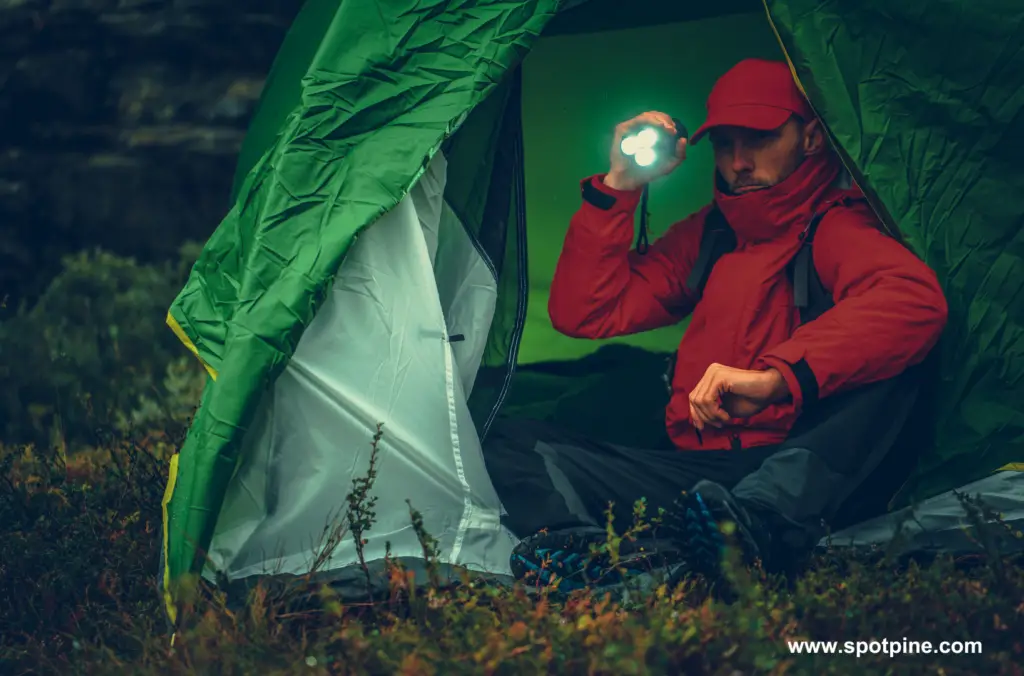
Managing Fear Of Loneliness And Isolation
The thought of being alone in the wilderness can leave people feeling lonely and isolated. However, this can also be an opportunity to reconnect with yourself and nature. To manage your fear of loneliness and isolation during solo camping, consider the following:
- Bring along books, journals, and music to keep you entertained and occupied.
- Take advantage of the quiet time to meditate or practice mindfulness.
- Make sure you have a reliable communication device to stay connected with family or friends.
- Use the opportunity to challenge yourself by trying new activities or learning new skills.
Coping With Fear Of The Unknown
The unknown can be frightening, especially when it comes to solo camping. However, it’s important to embrace the adventure and view it as an opportunity to learn and grow. Here are a few tips on how to cope with the fear of the unknown:
- Plan ahead, research the area and pack appropriately.
- Inform someone about your camping plans and itinerary.
- Prepare for any potential emergencies by packing a first-aid kit and knowing how to use it.
- Be willing to learn and adapt to new situations or challenges.
In conclusion, solo camping can be a challenging and rewarding experience, but it can also raise some common fears and apprehensions. However, with the proper planning and preparation, these fears can be overcome, and you can have an adventure of a lifetime.
Tips For Having Fun In Solo Camping
Going on a solo camping trip can provide a sense of independence, self-discovery and a break from the hustle and bustle of everyday life. When campers are alone in nature, they can become more in tune with their surroundings and gain a better understanding of their inner selves.
Follow these tips to make the most out of your solo camping experience and have a fun and memorable trip.
Solo camping can be a rewarding and exciting experience for those who love the great outdoors. However, it can also be a challenge to plan and execute a successful trip without any companions. To make your solo camping adventure a memorable one, here are some tips for having fun in solo camping, including trying out new adventures and activities, exploring scenic views and landmarks, and connecting with other campers and nature.
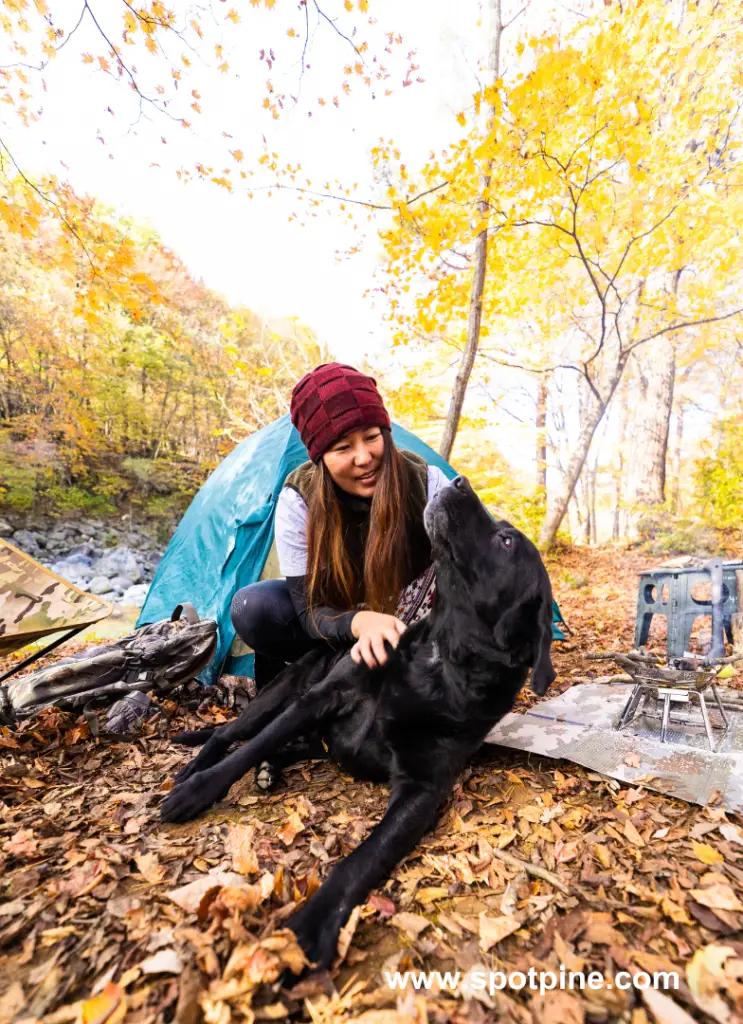
Trying Out New Adventures And Activities
One of the biggest advantages of solo camping is that you can try out new adventures and activities that you might not attempt in the presence of others. You can indulge in your favourite hobby or try out new ones like birdwatching, fishing, or hiking. Make sure you carry the necessary equipment and gear, such as a tent, sleeping bag, and stove, and don’t forget to keep safety in mind.
Exploring Scenic Views And Landmarks
Solo camping also gives you the chance to explore scenic views and landmarks that are unique to your camping site. You can take a walk in the nearby woods, climb a nearby hill, or hike to a mountaintop to witness a beautiful sunset or sunrise. You can also visit the nearby tourist attractions like waterfalls, caves, or historical sites. Make sure you plan your itinerary in advance and carry a map or GPS device to avoid getting lost.
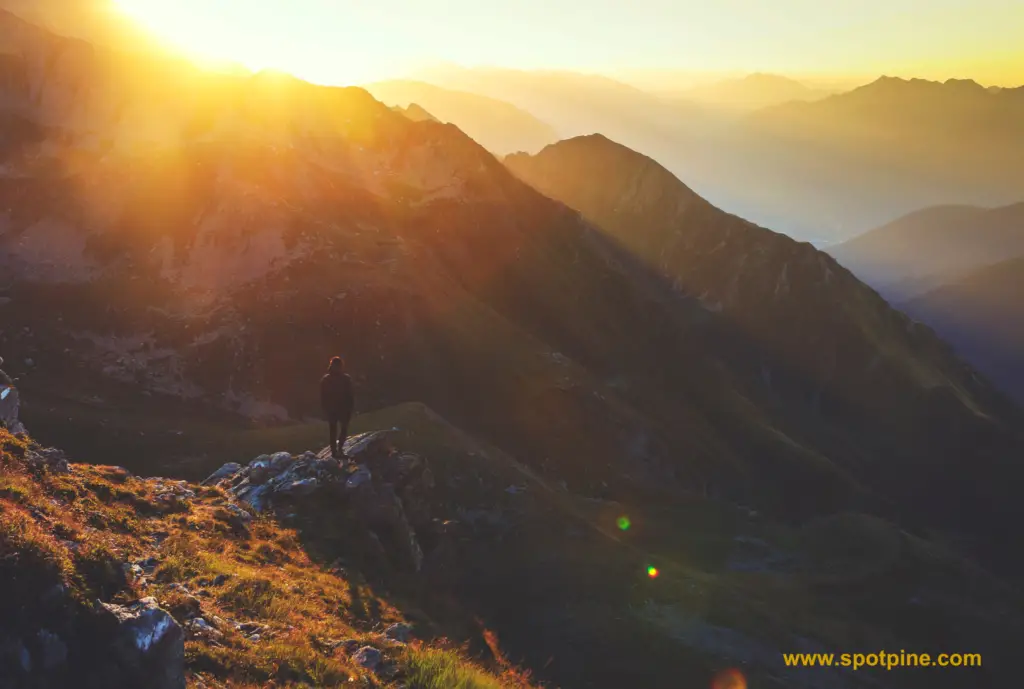
Connecting With Other Campers And Nature
Solo camping doesn’t mean that you have to be isolated from the world. You can still connect with nature and other campers by participating in group activities like campfire storytelling, group hikes, or BBQ parties. Interacting with other campers can be a great way to learn new things and share your own experiences. And, don’t forget to take adequate measures to protect yourself from unwanted wildlife encounters. Remember to enjoy the tranquility and peace that solo camping offers. Keep your senses open to the beauty of nature and the serenity it brings. With these tips, you will have a fulfilling and enjoyable solo camping trip that you will cherish for years to come.
Nature Preservation And Environmental Ethics
Solo camping is not only a way to reconnect with nature but also an excellent opportunity to demonstrate one’s commitment towards the environment. Nature preservation and environmental ethics are two significant benefits of solo camping, providing ample opportunities to create a positive impact on the ecosystem.
Leave No Trace Principle
As solo campers, it is essential to practice the Leave No Trace principle, which involves leaving the campsite and hiking trail as clean and untouched as possible. The principle emphasizes packing out all trash and litter, leaving rocks, plants, and natural objects as you find them, and minimizing campfire impact. By following this principle, solo campers can help preserve the natural beauty of remote areas while maintaining the ecological balance for future generations to enjoy.
Minimizing Your Impact On The Eco-system
Solo camping provides an opportunity for nature enthusiasts to minimize their impact on the ecosystem. Campers can do this by using eco-friendly camping equipment, such as solar-powered chargers and LED lights, avoiding the use of disposable products, and using biodegradable products whenever possible. Additionally, solo campers can choose to camp and hike in eco-sensitive areas, avoiding areas prone to degradation, erosion, and soil disturbance. This practice helps to preserve the ecosystem, maintaining optimal balance and protecting wildlife habitats.
Adhering To Camping And Hiking Guidelines
Adhering to camping and hiking guidelines is critical in promoting environmental ethics and preserving the natural ecosystem. Solo campers must follow guidelines related to wildlife protection, campfire safety, and responsible waste management. By doing so, they can reduce their environmental footprint, ensuring that they leave the environment as they found it. Additionally, solo campers should adhere to designated hiking paths to limit damage to the natural environment.
Reflecting On Your Solo Camping Experience
Solo camping provides an opportunity to escape from the hustle and bustle of everyday life. Reflecting on your experience can help you gain a deeper understanding of yourself and your purpose for embarking on the journey. It allows you to recharge and connect with nature, and can be a transformative experience.
Reflecting on your solo camping experience can be a powerful and transformative process. When you spend time alone in nature, you are given the opportunity to connect with yourself on a deeper level, and this can lead to profound insights and personal growth. Here are a few ways you can document and reflect on your solo camping experience:
Journaling And Documenting Your Journey
One of the best ways to reflect on your solo camping experience is to keep a journal or diary. This allows you to record your thoughts, feelings, and experiences while they are fresh in your mind. You can document the details of your journey, from the sights and sounds of the natural environment to your innermost thoughts and emotions. Your journal can serve as a way to process your experience and gain a deeper understanding of yourself.
Immortalizing Memory Through Photos And Videos
Capturing photos and videos of your solo camping experience can help you immortalize the memories of your time in nature. You can look back on these images and remember the sights, sounds, and feelings of your experience. Sharing your photos and videos on social media can also inspire others to get outside and connect with nature.
Sharing Experience And Inspiring Others
Finally, sharing your solo camping experience can be a powerful way to inspire others. You can write a blog post, share your experience on social media, or even start a YouTube channel. By sharing your experience, you can encourage others to get outside and explore nature for themselves. You never know who you might inspire to embark on their own solo camping adventure. In conclusion, reflecting on your solo camping experience can be a transformative process that allows you to connect with yourself on a deeper level. By documenting your journey through journaling, photos, and videos, and sharing your experience with others, you can inspire yourself and others to embrace the beauty and power of nature.
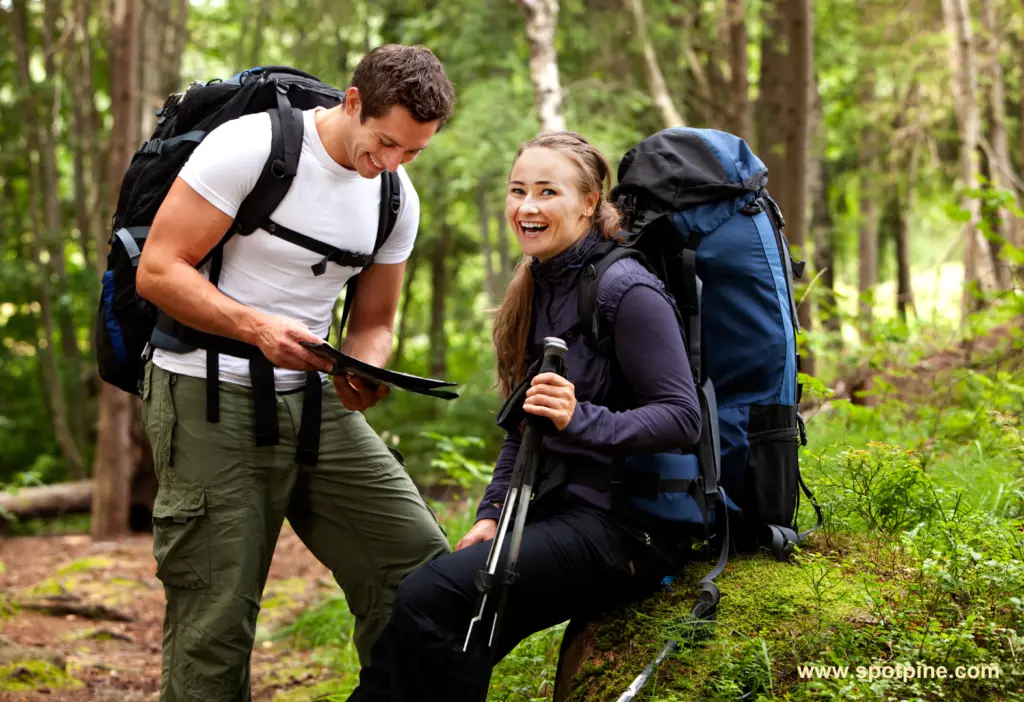
FAQs Of Purpose Of Solo Camping
What Is The Meaning Of Solo Camping?
Solo camping refers to the act of going camping alone, without any companions. This type of camping allows individuals to enjoy nature, solitude, and self-reflection. It can offer a unique and rewarding experience, but safety precautions should always be taken.
What Is The Point Of Going Camping?
Camping offers a chance to disconnect from our busy lives and connect with nature. It allows us to breathe fresh air, appreciate natural beauty, and engage in outdoor activities like hiking and fishing. Camping also provides an opportunity for solitude and relaxation, which can improve overall well-being.
How Many People Camp Alone?
It’s difficult to determine an exact number, but according to a survey, around 20% of campers in the US camp alone. Solo camping has become popular among some outdoor enthusiasts for the freedom and solitude it offers.
Can A Woman Go Camping Alone?
Yes, women can go camping alone. However, they should take necessary precautions such as informing someone of their whereabouts, carrying self-defense tools, and researching the camping area beforehand.
Conclusion
Overall, solo camping can be a life-changing experience for those seeking to discover themselves and unplug from the chaos of everyday life. The purpose of solo camping is to connect with nature, gain independence, and find peace within oneself. It is a chance to disconnect from technology and reconnect with oneself on a deeper level.
Solo camping may not be for everyone, but for those willing to take the leap, the rewards can be immeasurable. So, grab your tent and head out into the wilderness for a solo adventure you’ll never forget.

